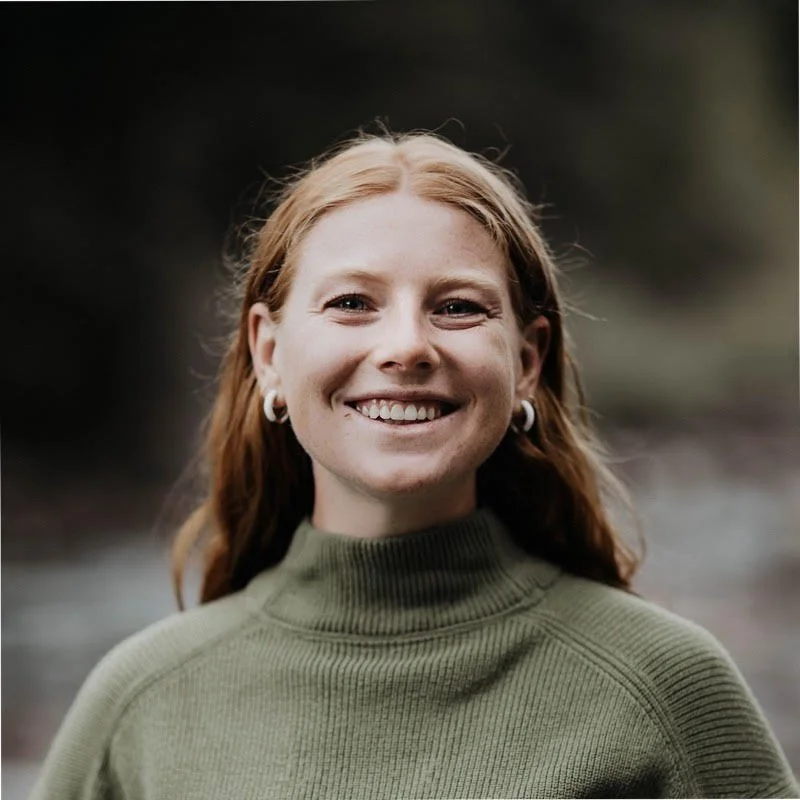Session 3: Youth Engagement and Workforce Development
〰️
Session 3: Youth Engagement and Workforce Development 〰️
-
Discover how Eagle River Coalition’s inclusive watershed programs empower entire communities, not just those with official titles, to become leaders, volunteers, and watershed champions. Learn strategies that connect career development, civic engagement, and shared stewardship to build stronger, more resilient watersheds.
-
Rose grew up in Eagle, CO, with fond memories of exploring the mountains and waters through rafting, hiking, running and skiing. She attended St Olaf College in Northfield, Minnesota where she majored in Environmental Studies and Political Science. During her years at St Olaf she solidified her passion for preserving natural landscapes and during an experiential study abroad trip in New Zealand/Australia she found a love for education through outdoor exploration and education. Shortly after graduation, she became a Lead Instructor for Montana Outdoor Science School, before deciding that Colorado was where she was meant to be. She is excited to continue to w
-
River Corps is a new AmeriCorps program that provides technician-level AmeriCorps Members to help fill the capacity gaps for watershed management and river health. Please join us to learn how River Corps Members supported organizations and agencies across Colorado in 2025 and help us brainstorm how we can improve the program.
The River Corps program model can provide dedicated Members to help your organization/agencies or provide a temporary crew to help your project’s labor. All River Corps Members first receive several weeks of training to become proficient in low-tech process-based river restoration (LTPBR), water quality sampling, discharge measurement, on-the-ground project monitoring, GIS mapping/data management, and essential watershed coordination techniques to ensure they are adding valuable capacity to watershed actions and initiatives for our host site partnerships. Throughout our Members' service term, there are frequent QAQC check-ins/site visits to ensure technical proficiency, cohort gatherings to promote cross-training/learning, and networking opportunities to showcase their service efforts in their community and learn about future career paths. Combining these hands-on trainings (including three (3) certificates that are recognized by the Colorado Department of Education) with the direct application to real projects, these Members will leave the program with employable skills that are in demand - and who may become the next generation of water leaders.
This exciting and lofty goal has already sparked many innovative diversion replacement projects in Colorado. Our pioneering panelists will engage participants in lively banter focused on what it’s like to implement these designs from initial planning through design, permitting, construction, and maintenance/operations. The panel will discuss case studies from around the state, hurdles encountered, and the context-dependent strengths and limitations of this design approach.
-
Luke Javernick is a physical scientist and the Executive Director of the nonprofit River Science. Luke earned a Ph.D. in civil engineering and completed a post-doc as a Marie Curie Action Fellow award recipient. Luke’s research and career have focused on using affordable data and technologies to better understand river processes. Luke founded River Science in 2016 as a nonprofit with the mission to help make river health affordable.
-
The Colorado Water Center and Colorado Water Conservation Board are partnering with stakeholders across the state to develop a centralized, online water education & workforce resource hub for Colorado. As an agency action in the Colorado Water Plan and identified need from the 2024 Colorado Water Workforce Summit, this resource hub will serve as a one-stop shop for students, educators, water professionals, and community members to access Colorado-specific water education and workforce resources. The first phase of the project is underway and is focused on working with stakeholders across the state to identify existing resources, programs, courses, boards, and trainings as well as gaps in educational curriculum and resources. Existing resources and information will be categorized and structured into a pilot online hub. It is anticipated that Phase 2 of the project will focus on getting feedback from users and stakeholders on the pilot hub and then incorporating revisions to the platform to maximize accessibility and utility. The presentation will share initial results from the scoping phase along with a timeline for next steps and what to expect from a user standpoint.
The North Fork Poudre SCT is a highly collaborative team between the private sector and community organizations, federal agencies, and municipalities focused on driving change for PMJM habitat. These unlikely community partnerships have led to an increase in riparian and stream restoration projects across PMJM habitat in Northern Colorado, ultimately leading to an increase in overall watershed health.
Elisabeth Schoder
-
Karen Schlatter was appointed director of the Colorado Water Center at Colorado State University in 2025, after joining the Center as associate director in 2023. Schlatter brings academic, nonprofit, and public sector experience in managing complex water challenges with a deep commitment to building partnerships and the ability to engage in conversations across Colorado’s water community. She joined CSU from the University of Florida Water Institute where her work included facilitating multi-stakeholder/academic teams to achieve shared goals around water management through collaborative, interdisciplinary research. Prior to her role at UF, she served as associate director of the Colorado River Delta Program at the Sonoran Institute, where she focused on building cross-sector and international partnerships to support large-scale ecological restoration, effective binational water management, and community engagement in the Colorado River Delta region. Schlatter earned a Bachelor of Science in biology from McGill University and a Master of Science in environmental studies from the University of Colorado Boulder. She served as an agricultural extension volunteer in the Peace Corps in Paraguay.



